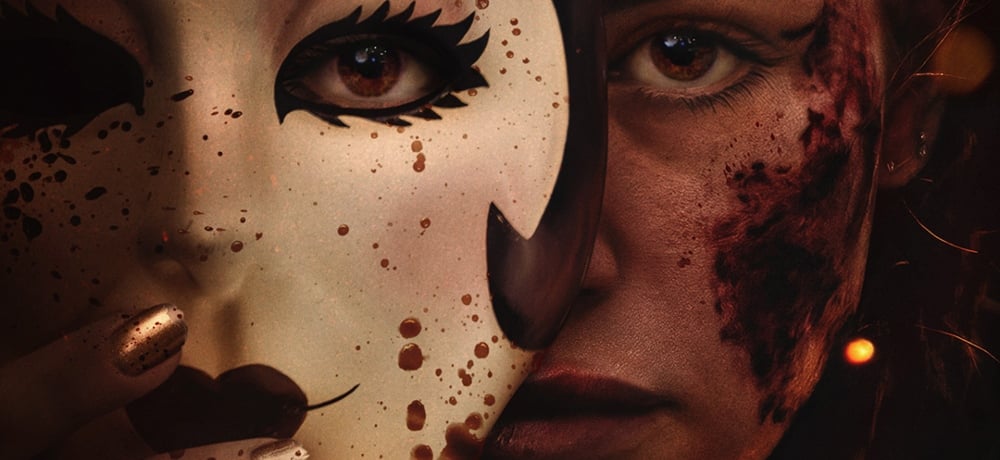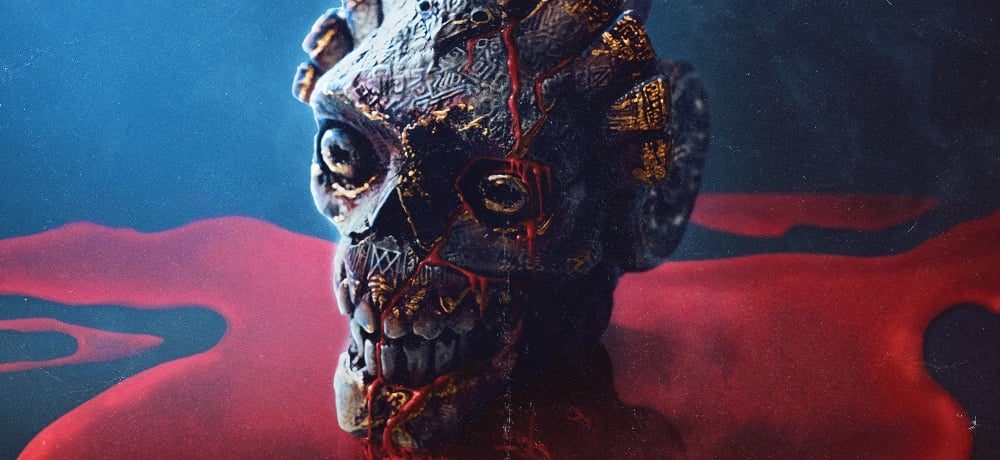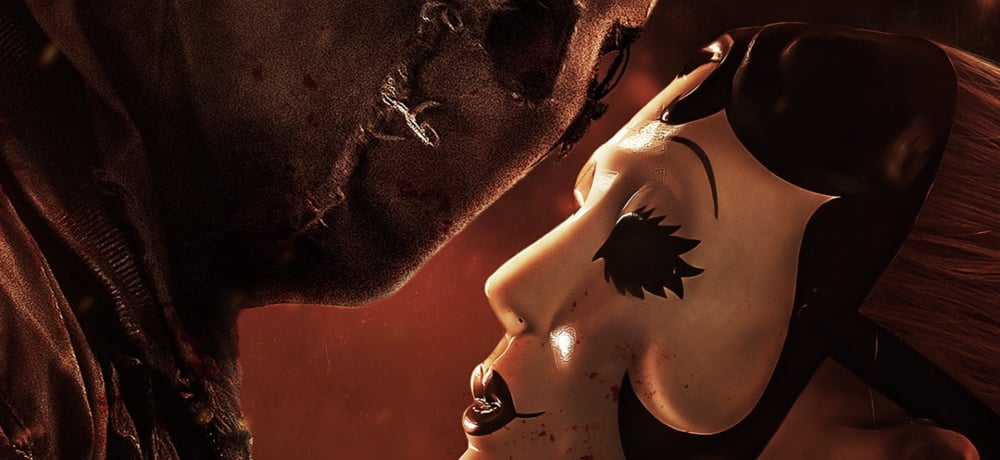





For his feature film debut, UK director Joe Martin brazenly takes on the class divide of Britain in Us and Them, his crime thriller that follows a frustrated young man named Danny, played by Jack Roth, who takes out his anger on the wealthy and elite members of society by kidnapping a well-to-do family, which doesn’t go exactly as he planned.
While at the 2017 SXSW Film Festival, Daily Dead took a deep dive into the political and economical focus of Us and Them with both Martin and Roth, resulting in a fascinating discussion on the problems that have caused a great division both in the UK and the world at large.
Fantastic job on the film, guys. It has a lot to say and you put a lot of energy into some really serious issues we can all relate to.
Joe Martin: In this film, the one thing that me and Jack really focused on was that we wanted the energy right. So we worked, we did everything right, we did rehearsals, notes, and Jack was still sending me emails the night before, even on set when everyone else went home. We would workshop late into the hours, getting only a few hours [of sleep], so that we could get it right.
It was a reciprocal process. That was how the whole thing went, from pre-production and production into post-production. It's a subjective story and everything, for me, was about nailing Danny and getting that right.
Jack Roth: It's like a character study. If he fits and works, everything falls into place, and that's why we had to debate it. You have to set the rules, because once they're set, you know where you can go, where you're playing, what are the levels, the heights, the peaks, and troughs. And I felt like that was one of the greatest things, because I've been waiting for the opportunity to do a performance like this, and Joe just let me run with it, but we had to get it right from the start.
Joe Martin: When we were casting, it was f***ing terrifying to be frank with you, because the challenge was, "How do we find [Danny]," because he's basically in every scene and he has so many long bits of dialogue and back and forths, and the whole thing is hung on his shoulders—someone who has this charisma and magnetism, but also this natural edginess to them. And that's very hard to find someone that has all of that, the complete package.
It was like, if we can't find that, if they don't buy that lead as Danny, this film falls flat. So when we found Jack, it was such a relief, because then it could all hang on Jack. The whole thing just hangs in that central performance.
Jack Roth: From an acting perspective, the interesting thing is I'm not looking for empathy, but you have to relate to him. You have to understand him. I'm not necessarily the good guy or the bad guy, because that doesn't exist in this world. We are motivated and become the monsters or the people that we become because of what's happened to us.
And I thought it was very important to understand Danny more than empathize with him. You've got to love him, but you also have to understand the moment he goes into that house, he's lost all credibility. What was great about this, is that you're constantly swinging from one side to the other over who you're in line with and who you agree with. To me, it's like 1984. At the end of that book, it wasn't solved. Big Brother wasn't torn down. Winston and Julia didn't go off to the woods and live together in love. No, he's a cog within the machine and as soon as the problem is isolated, his identity is taken away.
Now, what we do is we don't have an answer at the end, because the answer isn't there for us to tell you. What we have to do is have people watch it, understand the arguments and then go home, and that's where things change. Because the next time they step on someone, or get stepped on themselves, they'll relate to that experience a little more. And hopefully that's where change can begin.
Art's supposed to push boundaries. It's supposed to make you think. We're supposed to be holding a mirror up to life and reflecting upon it, and I think anything that doesn't make us feel slightly uncomfortable is kind of pointless.
Joe Martin: I'm from a similar background as Danny. My mom delivers mail and my dad's a train driver, so I grew up in that environment. I've been making some films and working in the media, which sometimes comes from a richer kind of background, and so moving between those two worlds, I realized that those two groups really don't understand each other.
We've come into this trend in society where people are more inclined to pay attention to things on the Internet than they do their own evening news, and I feel like you tap into that a bit here, because Danny’s solution to everything is to make a video of his actions and then post it online. Was that conscious to you going into this?
Jack Roth: It's dot tick news. News is supposed to be the news. It isn't supposed to have any sort of politics attached to it, it's just fact. But then we look at Danny—he's not stupid, and that's the greatest thing. He's someone who's alone, who thinks too much, who does draw the connections between each of these points and sees the connections, but then totally doesn't understand what he's doing wrong.
It's a great character to play for me because I think a lot of us, especially if you're a young artist who's trying to do everything, there is this frustration that lives within you. There is this feeling of trying to break into the establishment of the film industry, and we all kind of feel that way, and it was very easy for me to come up with Danny with Joe, and complicate him to a point where you're never sure if you're rooting for him or against him.
Joe Martin: The thing that has always frustrated me is the portrayal of the working class in film, where they are always portrayed as these characters that always have to be dumb. And that's just not the case. That stereotype helps enforce this real divide between people, where if you're rich, that means you're smart and if you're poor, then you're stupid. It’s total bullshit.
Us and Them actually has a dedication at the end to Peter Robinson. Peter Robinson was my best friend at film school. He was an editor, a really talented editor, and he edited my grad film that won two Royal Television Society awards. It was a big success for us, and after we graduated, it was in the middle of the economic crisis in 2011, which was terrible. He had come from a very tough background and, to be honest with you, he had been in jails and young offenders institutions, but he had turned his life around. It takes a hell of a lot when you come from nothing to turn your life around. But because he graduated into this economic environment, there was no work. He was just trying to get odd jobs, but there were no odd jobs. Eventually he turned back to drugs, and had an accidental overdose and died.
That was such a waste of potential and the way that story was written up, he was seen as being an oink, a street kid, or whatever it was, where a local guy dies from bad drugs in the area. It was like, F***, man, there's a whole complexity to this guy's story. For him to turn himself around at one point, that was a big mountain for him to climb, and he climbed it, but he still couldn't get ahead.
So social mobility in England has plummeted since the ’70s, and it’s like Jack says in the film, this is the first generation in recent history that is going to be poorer than its parents. That's true. If you're from a lower middle class background, you're gonna be working class. If you're from a working class background, you're gonna be stuck being working class and it doesn't matter if you go to a good school or whatever. You're stuck. It's really hard.
---------
Stay tuned to Daily Dead for more of our coverage from SXSW, and in case you missed it, catch up on our previous coverage of the film festival, including Heather's review of Us and Them.